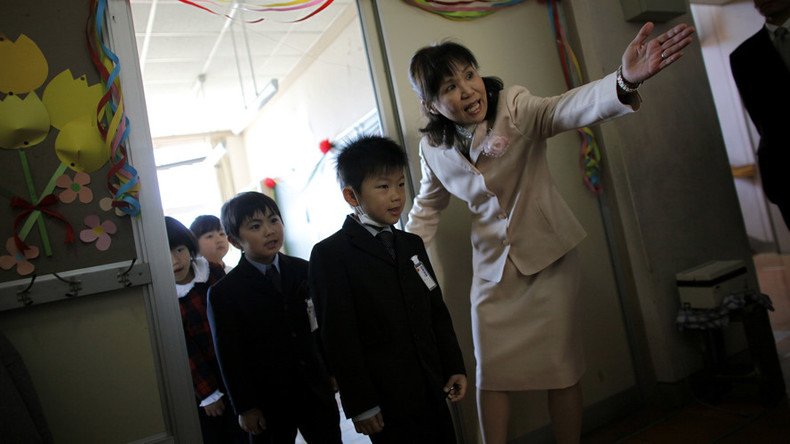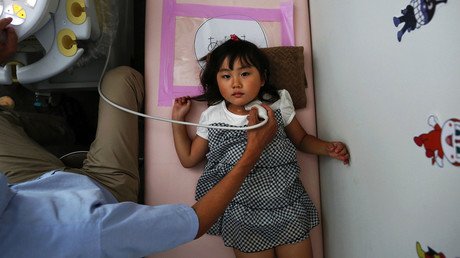Fukushima child evacuees get comedy classes to loosen up & combat trauma

Over six years after the nuclear disaster at the Fukushima power plant, school administrators have decided to offer lessons in traditional Japanese stand-up comedy to relieve stress and anxiety among evacuee children, who have still not returned to their homes.
“Many children feel exhausted at home,” Toshihide Takeuchi, head of the education board of Okuma, an evacuated town 5km from the decimated plant, told Asahi Shimbun. “They appreciate what adults are doing to help them, but they also are evacuees. These children work very hard, trying to live up to adults’ expectations.”
The town’s education board, which has been temporarily relocated to Aizu-Wakamatsu, 120km west of the site of the tsunami and earthquake, agreed last month to approve eight-hour courses in manzai, a traditional Japanese mix of stand-up, stage sketch show and clowning.
“Principals should make people laugh at least once a day. Teachers who cannot make students smile in classes will be arrested,” Takeuchi joked to his audience during the meeting.
Professional performers – manzai troupes usually consist of a straight man and a funny man – will come into class and entertain children, before teaching them how to perform themselves. Educators and psychologists complain that Japanese schoolchildren are too uptight – and polite – to express themselves freely to adults, and the course should open up communication channels.
Manzai programs have already been tested by two education boards responsible for evacuee children, and Asahi Shimbun reports that they have proven effective, and were warmly received by the educators.
The inventive measures are born out of necessity: 160,000 moved away from Fukushima in the wake of the March 2011 disaster, just over half of them compulsorily, and about 80,000 have still been unable to return.
While those whose cities have still not been cleared as safe to return receive generous government payments, the so-called voluntary evacuees, many of whom say that they are still too afraid to return, have seen their benefits slashed over the past months, as the government attempts to regain control over the spiraling cost of the accident, currently estimated at just under $200 billion.













